Fleurs du Mal Magazine


Or see the index
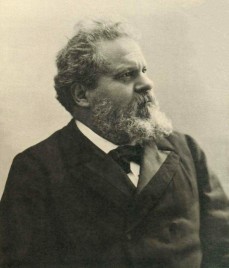
Madrigal
Breaking his way through the white clouds in the azure,
The sun laughs out and cries:
“O Springtime, come!”
Across the greening hills with placid murmurs
The streams sing back to the breeze:
“O Springtime, come!”
“O Springtime, come!” to his heart the poet is saying,
While gazing, O pure Lalage, in thine eyes!
Giosuè Carducci
(1835 – 1907)
Madrigal
• fleursdumal.nl magazine
More in: # Classic Poetry Archive, 4SEASONS#Spring, Archive C-D, Archive C-D
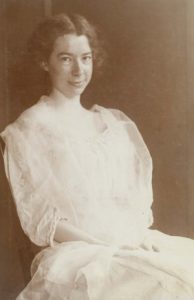
Spring Rain
I thought I had forgotten,
But it all came back again
To-night with the first spring thunder
In a rush of rain.
I remembered a darkened doorway
Where we stood while the storm swept by,
Thunder gripping the earth
And lightning scrawled on the sky.
The passing motor busses swayed,
For the street was a river of rain,
Lashed into little golden waves
In the lamp light’s stain.
With the wild spring rain and thunder
My heart was wild and gay;
Your eyes said more to me that night
Than your lips would ever say….
I thought I had forgotten,
But it all came back again
To-night with the first spring thunder
In a rush of rain.
Sara Teasdale
(1884-1933)
Spring Rain
• fleursdumal.nl magazine
More in: 4SEASONS#Spring, Archive Q-R, Archive S-T, Archive S-T, Teasdale, Sara
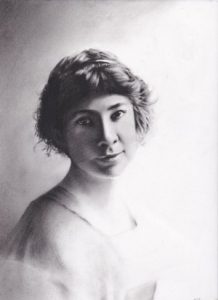
Spring Night
The park is filled with night and fog,
The veils are drawn about the world,
The drowsy lights along the paths
Are dim and pearled.
Gold and gleaming the empty streets,
Gold and gleaming the misty lake,
The mirrored lights like sunken swords,
Glimmer and shake.
Oh, is it not enough to be
Here with this beauty over me?
My throat should ache with praise, and I
Should kneel in joy beneath the sky.
O, beauty, are you not enough?
Why am I crying after love,
With youth, a singing voice, and eyes
To take earth’s wonder with surprise?
Why have I put off my pride,
Why am I unsatisfied,
I, for whom the pensive night
Binds her cloudy hair with light,
I, for whom all beauty burns
Like incense in a million urns?
O beauty, are you not enough?
Why am I crying after love?
Sara Teasdale
(1884-1933)
Spring Night
• fleursdumal.nl magazine
More in: 4SEASONS#Spring, Archive S-T, Archive S-T, Natural history, Teasdale, Sara
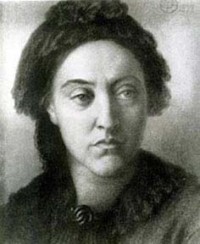
Spring
Frost-locked all the winter,
Seeds, and roots, and stones of fruits,
What shall make their sap ascend
That they may put forth shoots?
Tips of tender green,
Leaf, or blade, or sheath;
Telling of the hidden life
That breaks forth underneath,
Life nursed in its grave by Death.
Blows the thaw-wind pleasantly,
Drips the soaking rain,
By fits looks down the waking sun:
Young grass springs on the plain;
Young leaves clothe early hedgerow trees;
Seeds, and roots, and stones of fruits,
Swollen with sap put forth their shoots;
Curled-headed ferns sprout in the lane;
Birds sing and pair again.
There is no time like Spring,
When life’s alive in everything,
Before new nestlings sing,
Before cleft swallows speed their journey back
Along the trackless track–
God guides their wing,
He spreads their table that they nothing lack,–
Before the daisy grows a common flower,
Before the sun has power
To scorch the world up in his noontide hour.
There is no time like Spring,
Like Spring that passes by;
There is no life like Spring-life born to die,–
Piercing the sod,
Clothing the uncouth clod,
Hatched in the nest,
Fledged on the windy bough,
Strong on the wing:
There is no time like Spring that passes by,
Now newly born, and now
Hastening to die.
Christina Georgina Rossetti
(1830 – 1894)
Spring
• fleursdumal.nl magazine
More in: 4SEASONS#Spring, Archive Q-R, Archive Q-R, Rossetti, Christina
Manos de primavera. Antología poética de Federico García Lorca
Hands of Spring : Anthology of Poetry by Federico García Lorca
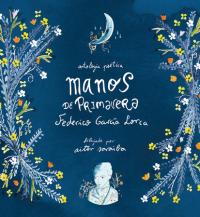 La voz de Lorca ilustrada por la mano poética de Aitor Saraiba.
La voz de Lorca ilustrada por la mano poética de Aitor Saraiba.
La luna, el agua, la tierra, las imágenes lorquianas caminan de la mano de las poéticas ilustraciones de Aitor Saraiba. Una defensa de las voces únicas y las imágenes indestructibles. Un libro, sí, un canto a la libertad y al arte.
Lorca’s voice, illustrated by the poetic hand of Aitor Saraiba.
The moon, water, earth: Lorca’s images go hand-in-hand with the poetic illustrations of Aitor Saraiba. A defense of unique voices and indestructible images. A book—and a song to freedom and art.
Manos de primavera. Antología poética de Federico García Lorca
Hands of Spring : Anthology of Poetry by Federico García Lorca
By Federico Garcia Lorca
Hardcover
Pages: 128
10 x 11
Aug 20, 2019
Published by Montena
PRH Grupo Editoria
Category: Poetry
Spanish Language Nonfiction
ISBN 9788417671419
ISBN-13: 9788417671419
$20.95
# More poetry
Anthology of Poetry
by Federico García Lorca
• fleursdumal.nl magazine
More in: - Book News, 4SEASONS#Spring, Archive K-L, Archive K-L, Art & Literature News, Garcia Lorca, Federico, WAR & PEACE
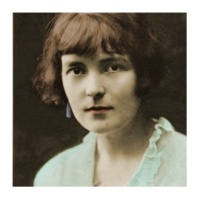 Spring Pictures
Spring Pictures
by Katherine Mansfield
I
It is raining. Big soft drops splash on the people’s hands and cheeks; immense warm drops like melted stars. “Here are roses! Here are lilies! Here are violets!” caws the old hag in the gutter. But the lilies, bunched together in a frill of green, look more like faded cauliflowers. Up and down she drags the creaking barrow. A bad, sickly smell comes from it. Nobody wants to buy. You must walk in the middle of the road, for there is no room on the pavement. Every single shop brims over; every shop shows a tattered frill of soiled lace and dirty ribbon to charm and entice you. There are tables set out with toy cannons and soldiers and Zeppelins and photograph frames complete with ogling beauties. There are immense baskets of yellow straw hats piled up like pyramids of pastry, and strings of coloured boots and shoes so small that nobody could wear them. One shop is full of little squares of mackintosh, page 185 blue ones for girls and pink ones for boys with Bébé printed in the middle of each …
“Here are lilies! Here are roses! Here are pretty violets!” warbles the old hag, bumping into another barrow. But this barrow is still. It is heaped with lettuces. Its owner, a fat old woman, sprawls across, fast asleep, her nose in the lettuce roots … Who is ever going to buy anything here …? The sellers are women. They sit on little canvas stools, dreamy and vacant looking. Now and again one of them gets up and takes a feather duster, like a smoky torch, and flicks it over a thing or two and then sits down again. Even the old man in tangerine spectacles with a balloon of a belly, who turns the revolving stand of ‘comic’ postcards round and round cannot decide …
Suddenly, from the empty shop at the corner a piano strikes up, and a violin and flute join in. The windows of the shop are scrawled over—New Songs. First Floor. Entrance Free. But the windows of the first floor being open, nobody bothers to go up. They hang about grinning as the harsh voices float out into the warm rainy air. At the doorway there stands a lean man in a pair of burst carpet slippers. He has stuck a feather through the broken rim of his hat; with what an air he wears it! The feather is magnificent. It is gold epaulettes, frogged coat, page 186 white kid gloves, gilded cane. He swaggers under it and the voice rolls off his chest, rich and ample.
“Come up! Come up! Here are the new songs! Each singer is an artiste of European reputation. The orchestra is famous and second to none. You can stay as long as you like. It is the chance of a lifetime, and once missed never to return!” But nobody moves. Why should they? They know all about those girls—those famous artistes. One is dressed in cream cashmere and one in blue. Both have dark crimped hair and a pink rose pinned over the ear … They know all about the pianist’s button boots—the left foot—the pedal foot—burst over the bunion on his big toe. The violinist’s bitten nails, the long, far too long cuffs of the flute player—all these things are as old as the new songs.
For a long time the music goes on and the proud voice thunders. Then somebody calls down the stairs and the showman, still with his grand air, disappears. The voices cease. The piano, the violin and the flute dribble into quiet. Only the lace curtain gives a wavy sign of life from the first floor.
It is raining still; it is getting dusky … Here are roses! Here are lilies! Who will buy my violets? …
II
Hope! You misery—you sentimental, faded female! Break your last string and have done with it. I shall go mad with your endless thrumming; my heart throbs to it and every little pulse beats in time. It is morning. I lie in the empty bed—the huge bed big as a field and as cold and unsheltered. Through the shutters the sunlight comes up from the river and flows over the ceiling in trembling waves. I hear from outside a hammer tapping, and far below in the house a door swings open and shuts. Is this my room? Are those my clothes folded over an armchair? Under the pillow, sign and symbol of a lonely woman, ticks my watch. The bell jangles. Ah! At last! I leap out of bed and run to the door. Play faster—faster—Hope!
“Your milk, Mademoiselle,” says the concierge, gazing at me severely.
“Ah, thank you,” I cry, gaily swinging the milk bottle. “No letters for me?”
“Nothing, mademoiselle.”
“But the postman—he has called already?”
“A long half-hour ago, mademoiselle.”
Shut the door. Stand in the little passage a moment. Listen—listen for her hated twanging. Coax her—court her—implore her to play just once that charming little thing for one string only. In vain.
III
Across the river, on the narrow stone path that fringes the bank, a woman is walking. She came down the steps from the Quay, walking slowly, one hand on her hip. It is a beautiful evening; the sky is the colour of lilac and the river of violet leaves. There are big bright trees along the path full of trembling light, and the boats, dancing up and down, send heavy curls of foam rippling almost to her feet. Now she has stopped. Now she has turned suddenly. She is leaning up against a tree, her hands over her face; she is crying. And now she is walking up and down wringing her hands. Again she leans against the tree, her back against it, her head raised and her hands clasped as though she leaned against someone dear. Round her shoulders she wears a little grey shawl; she covers her face with the ends of it and rocks to and fro.
But one cannot cry for ever, so at last she becomes serious and quiet, patting her hair into place, smoothing her apron. She walks a step or two. No, too soon, too soon! Again her arms fly up—she runs back—again she is blotted against the tall tree. Squares of gold light show in the houses; the street lamps gleam through the new leaves; yellow fans of light follow the dancing boats. For a moment she is a blur against the tree, white, grey and black, melting into the stones and the shadows. And then she is gone.
Spring Pictures (1915)
by Katherine Mansfield (1888 – 1923)
From: Something Childish and Other Stories
fleursdumal.nl magazine
More in: 4SEASONS#Spring, Archive M-N, Katherine Mansfield, Mansfield, Katherine
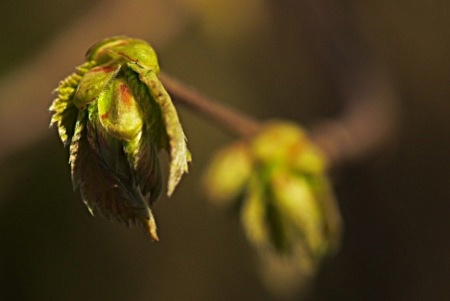
Hans Hermans© photos: Spring
# more on website hans hermans
fleursdumal.nl magazine
More in: 4SEASONS#Spring, Dutch Landscapes, Hans Hermans Photos, Natural history, Photography

D. H. Lawrence
(1885-1930)
The Enkindled Spring
This spring as it comes bursts up in bonfires green,
Wild puffing of emerald trees, and flame-filled bushes,
Thorn-blossom lifting in wreaths of smoke between
Where the wood fumes up and the watery, flickering rushes.
I am amazed at this spring, this conflagration
Of green fires lit on the soil of the earth, this blaze
Of growing, and sparks that puff in wild gyration,
Faces of people streaming across my gaze.
And I, what fountain of fire am I among
This leaping combustion of spring? My spirit is tossed
About like a shadow buffeted in the throng
Of flames, a shadow that’s gone astray, and is lost.
D.H. Lawrence poetry
fleursdumal.nl magazine
More in: 4SEASONS#Spring, Archive K-L, D.H. Lawrence, Lawrence, D.H.
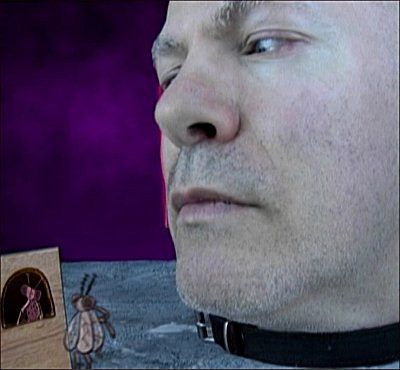
Nick J. Swarth
luizig lenteliedje
Langs de ringbanen gaan de luiken open.
Hoera, er loopt weer tuig over straat.
Naar buiten met de hond, tijd om te lijnen.
Ik wil dat dit lied klinkt als een generaal pardon,
een hoera voor ‘skaeve huse’ en nieuwe pleinen,
voor sneeuwklok, hazelaar en gladiool.
Hoera voor nota en bestemmingsplan.
Hoera voor vuile handen maken, van de hoogste
verdieping naar beneden braken.
Leve de architect, leve de doorgewinterde bouwer
en de planoloog.
Stort je zaad in X-burgs aarde, klaar het karwei
dat niemand klaarde.
Zet de oudjes op de bus, gratis duurt het langst.
Hoera voor bange burgers, voor de eitjes van de
angst,
voor terroristen, trekvogels en opgehokte kippen.
Hoera voor benavelde lolita’s met bonte Breezers
aan getuite lippen.
O, en niet te vergeten:
Eén maal big mac menu, twee maal big mac
Eén maal mac chicken, negen maal nuggets
Eén maal happy meal kip en vier maal mayo
a.u.b.
Nick J. Swarth
lousy spring song
Along the ring roads the shutters are opening.
Hurrah, there are yobbo’s in the streets once more.
Walk the dog, time to ration our fare.
I want this song to sound like a general pardon,
a hurrah for ‘skaeve huse’ and new squares,
for snowdrop, hazel and gladiola.
Hurrah to invoice and zoning plan.
Hurrah to getting one’s hands dirty, puking down
from the topmost floor.
Long live the architect, long live the seasoned builder
and the town planner.
Sow your seed in X-burg’s soil, take to task
what nobody graced with toil.
Help the OAPs onto the bus – free rides last longest.
Hurrah to frightened citizens, to the eggs of fear,
to terrorists, migrant birds and cooped up chickens.
Hurrah to belly buttoned lolitas holding neon alcopops
to pouting lips.
Oh, and lest I forget:
One big mac meal, two big macs
One mac chicken meal, nine nuggets
One chicken happy meal and four sachets of ketchup
please
Translation: Willem Groenewegen
fleursdumal.nl magazine
More in: 4SEASONS#Spring, Archive G-H, Archive S-T, Archive S-T, Swarth, Nick J.
.jpg)
George Eliot
(Mary Ann Evans, 1819 – 1880)
Spring comes hither
Spring comes hither
Buds the rose . . .
Roses wither
Sweet spring goes . . .
O ja là
O ja là . . .
Would she carry me.
Summer soars
Wide-wing’d day . . .
White light pours
Flies away . . .
O ja là
O ja là . . .
Would he carry me.
Soft winds blow
Westward borne . . .
Onward go
Towards the morn
O ja là
O ja là . . .
Would they carry me.
Sweet birds sing
O’er the graves
Then take wing
O’er the waves
O ja là
O ja là . . .
Would they carry me.
.jpg)
George Eliot poetry
• fleursdumal.nl magazine
More in: 4SEASONS#Spring, Archive E-F, Archive E-F, Eliot, George
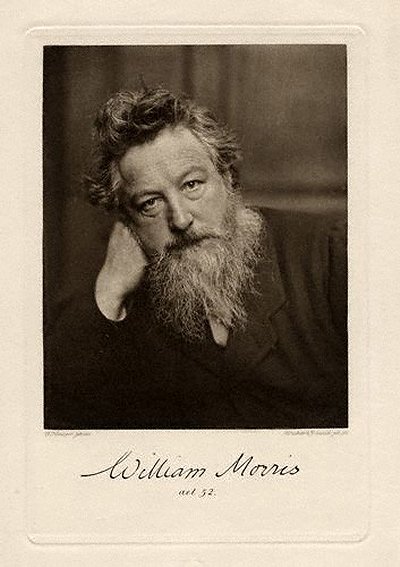
William Morris
(1834-1896)
Spring’s Bedfellow
Spring went about the woods to-day,
The soft-foot winter-thief,
And found where idle sorrow lay
‘Twixt flower and faded leaf.
She looked on him, and found him fair
For all she had been told;
She knelt adown beside him there,
And sang of days of old.
His open eyes beheld her nought,
Yet ‘gan his lips to move;
But life and deeds were in her thought,
And he would sing of love.
So sang they till their eyes did meet,
And faded fear and shame;
More bold he grew, and she more sweet,
Until they sang the same.
Until, say they who know the thing,
Their very lips did kiss,
And Sorrow laid abed with Spring
Begat an earthly bliss.
![]()
William Morris poetry
• fleursdumal.nl magazine
More in: *The Pre-Raphaelites Archive, 4SEASONS#Spring, Archive M-N, Archive M-N, Morris, William
.jpg)
Gerard Manley Hopkins
(1844-1889)
Spring and Fall
To a young child
Margaret, are you grieving
Over Goldengrove unleaving?
Leaves, like the things of man, you
With your fresh thoughts care for, can you?
Ah! as the heart grows older
It will come to such sights colder
By and by, nor spare a sigh
Though worlds of wanwood leafmeal lie;
And yet you will weep and know why.
Now no matter, child, the name:
Sorrow’s springs are the same.
Nor mouth had, no nor mind, expressed
What heart heard of, ghost guessed:
It is the blight man was born for,
It is Margaret you mourn for.
![]()
Gerard Manley Hopkins poetry
fleursdumal.nl magazine
More in: # Classic Poetry Archive, 4SEASONS#Spring, Archive G-H, Archive G-H, Hopkins, Gerard Manley
Thank you for reading Fleurs du Mal - magazine for art & literature